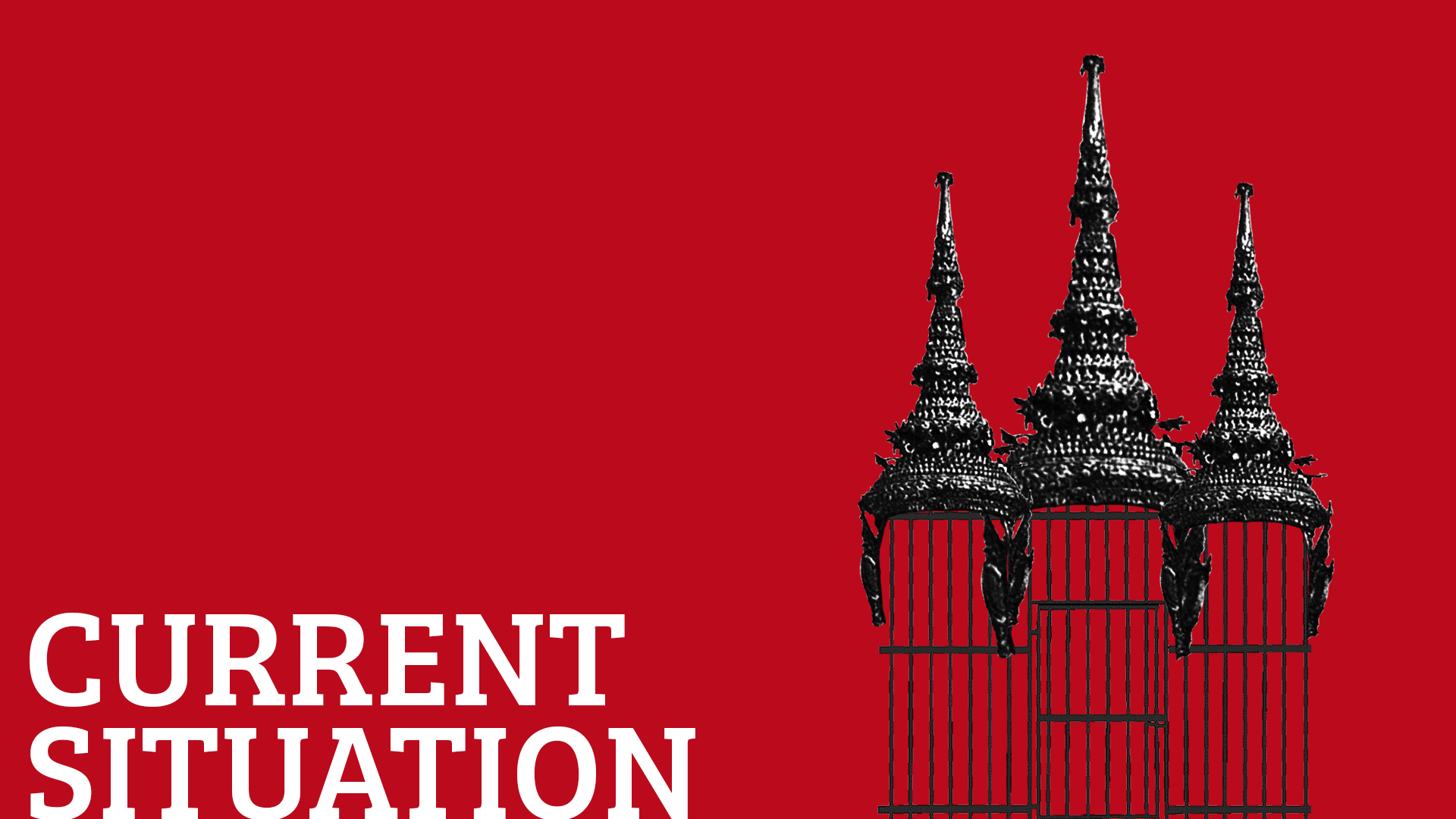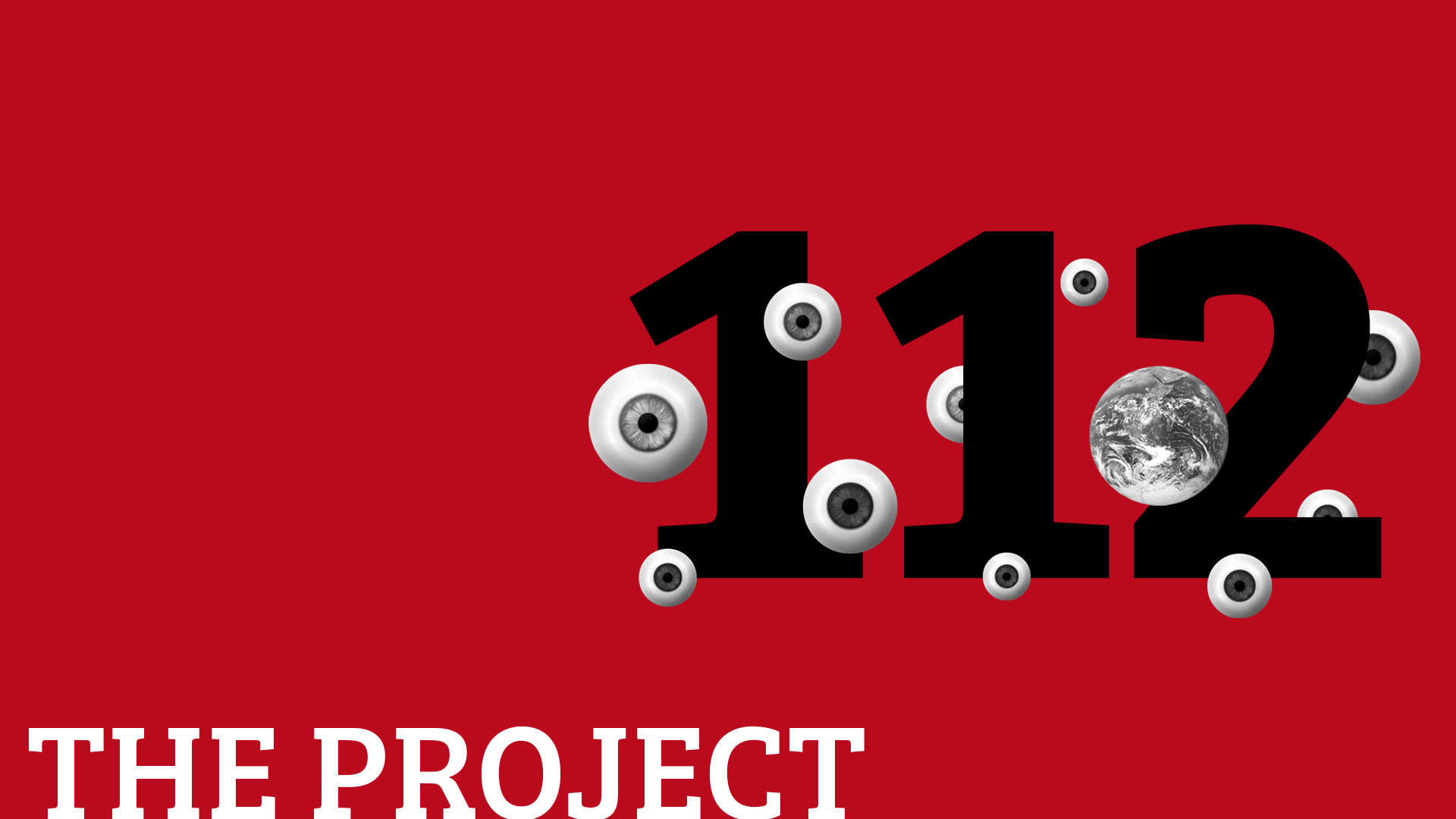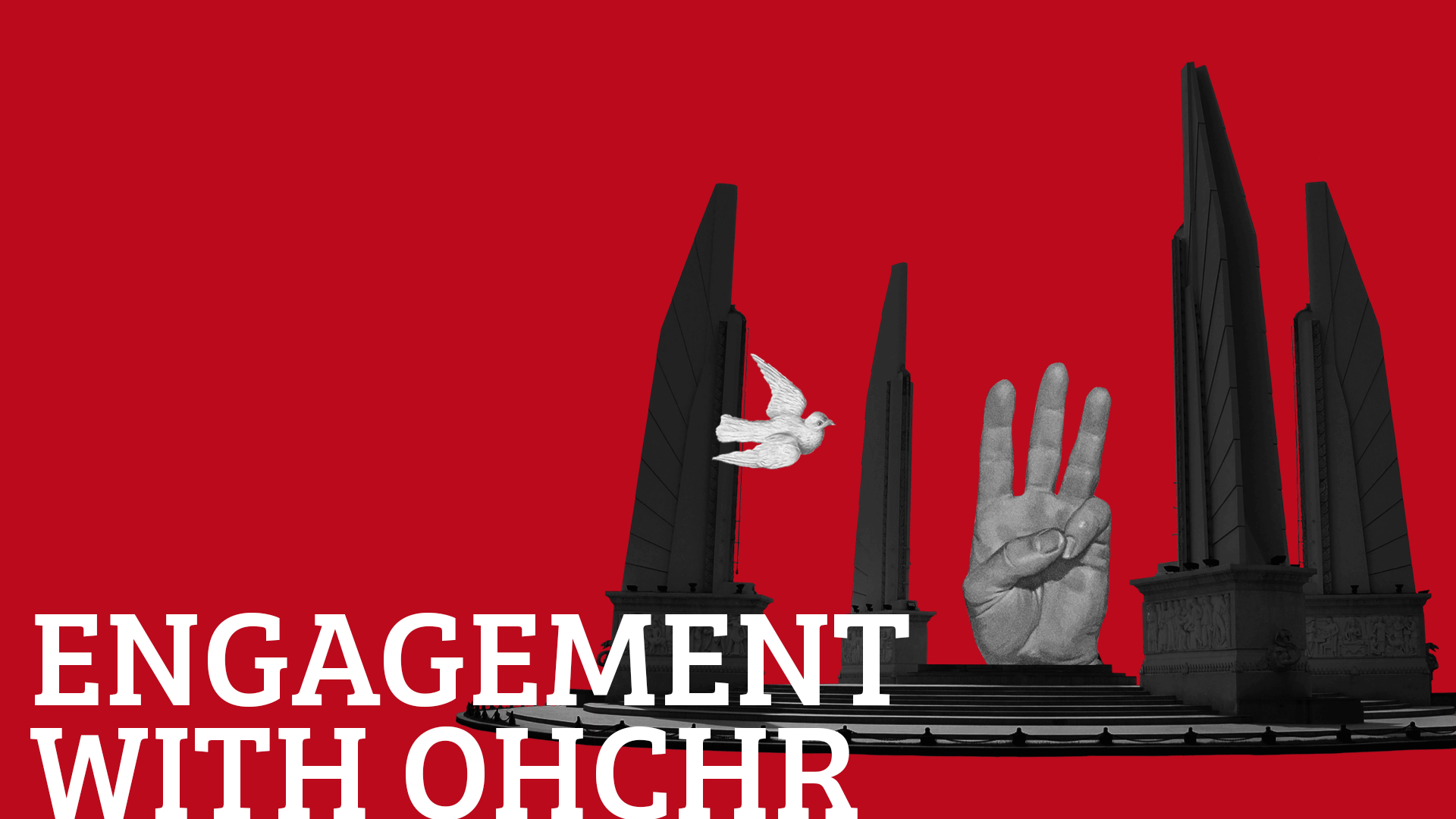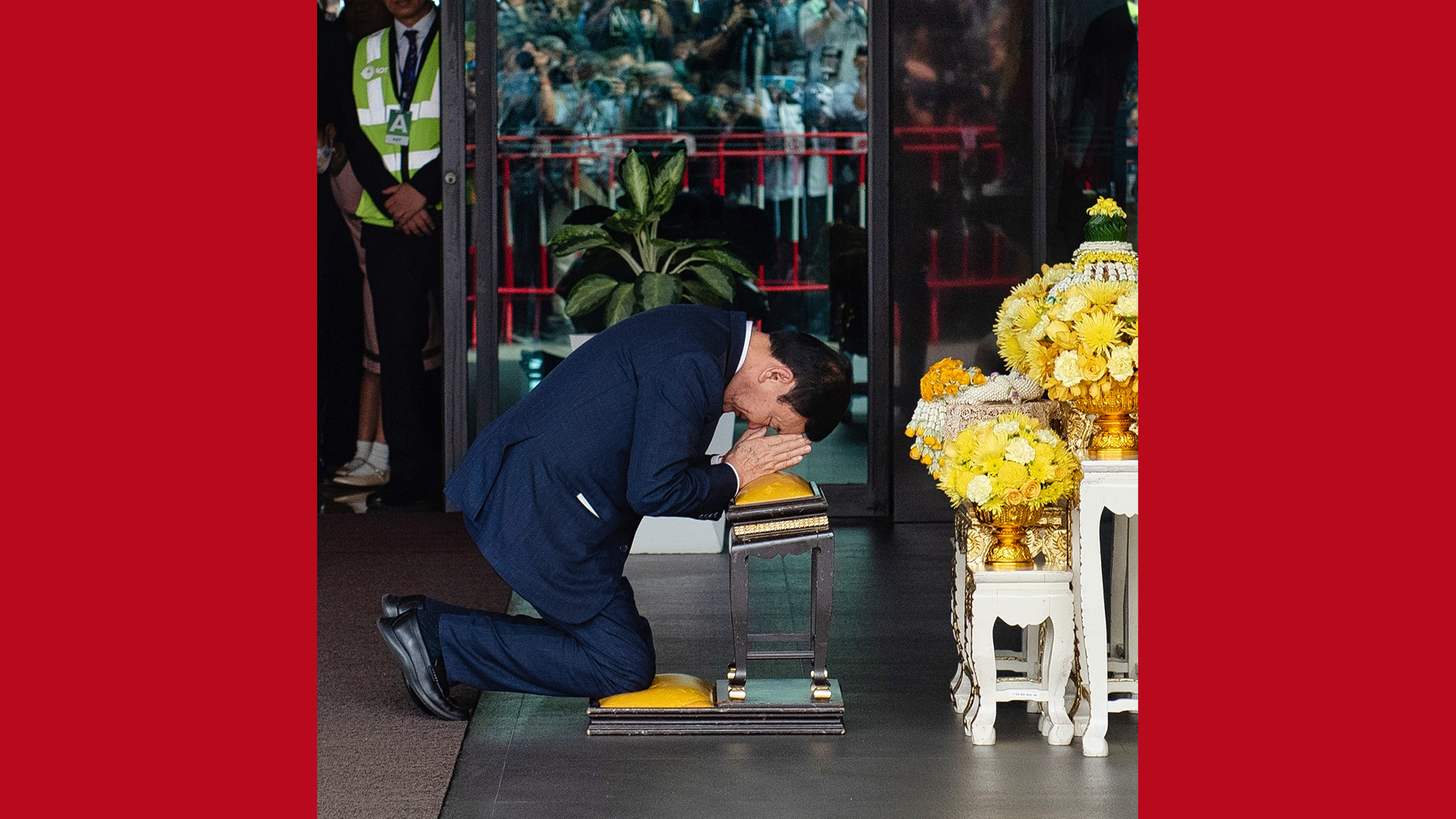
Political Inferno: Thaksin's Resurgence and the Lèse-Majesté Storm in Thailand
The complex and evolving political landscape of Thailand has once again thrust Thaksin Shinawatra into the spotlight, showcasing the enduring struggle between populist movements and entrenched military influence.
Prem Singh Gill, June 15, 2024
Thaksin's recent return to Thailand, after 16 years of exile, imprisonment, and subsequent parole, underscores the underlying tensions and strategic manoeuvring shaping Thai politics. The decision to prosecute Thaksin under the lèse-majesté law, eight years after the initial charges were filed, adds another layer of complexity to this narrative, prompting questions about the genuineness of any prior agreement with Thaksin and the potential involvement of a tactical ploy from the military and monarchy.
What motives underpin the revival of lèse-majesté charges against Thaksin Shinawatra, and what are its implications for Thailand's broader political landscape? Specifically, it scrutinises whether this legal action signifies a strategic recalibration in power dynamics, potentially indicating a more assertive stance by the military and monarchy, or if it serves as a tactical manoeuvre aimed at consolidating power or mitigating immediate threats. This critical examination forms the foundation of understanding the intricate interplay between populist movements, military influence, and the rule of law within Thai politics.
Thaksin Shinawatra, a key figure in populist politics in Thailand, has been polarising since his rise to power in the early 2000s through the Thai Rak Thai Party. His policies, focused on rural and lower-income populations, won widespread support but his administration faced accusations of corruption and authoritarianism, culminating in a military coup in 2006. After years in exile, Thaksin returned to Thailand in 2023, sparking significant anticipation and speculation.
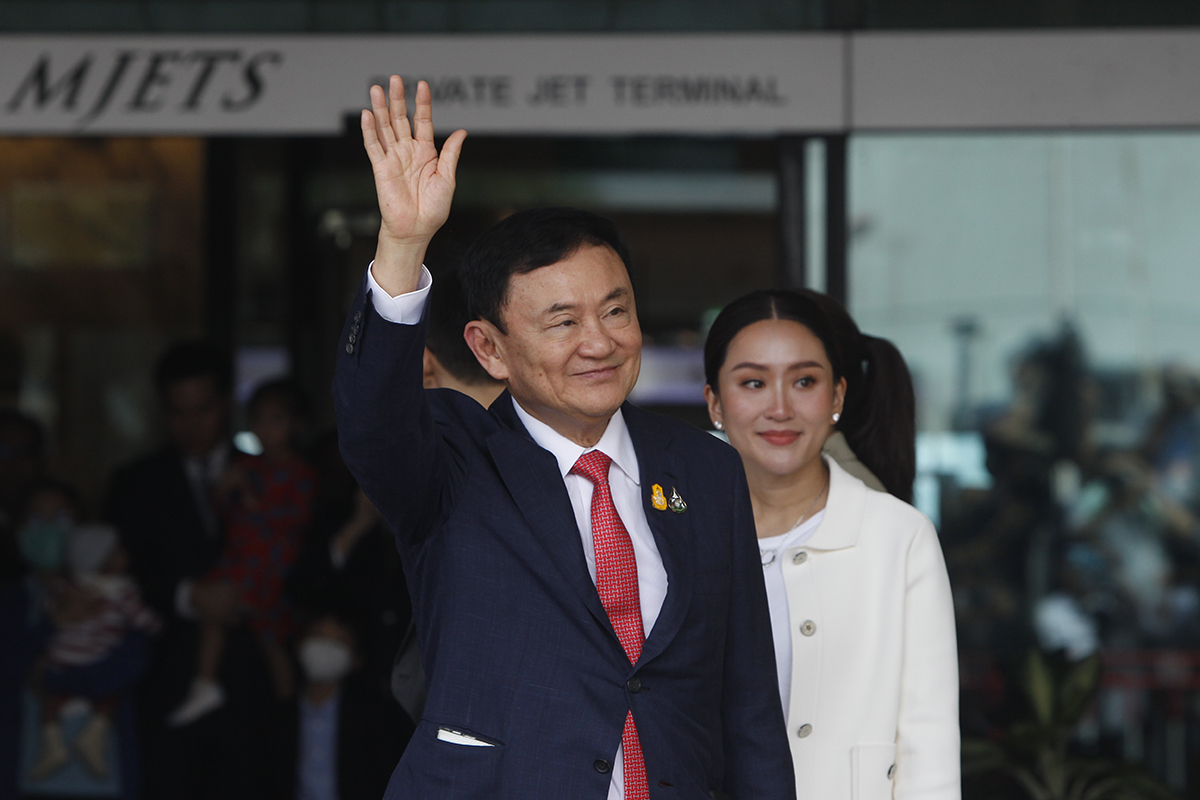
Military's and Monarchy's Strategic Gambit?
Thaksin’s return coincided with a period of political instability marked by the August 2023 general election, which witnessed the emergence of new political alliances and power struggles. Upon his return, Thaksin was promptly taken to the Supreme Court to hear a brief verdict, followed by a quick departure to Bangkok Remand Prison. However, this stint lasted only one hour before he was transferred to the Royal Police General Hospital due to health concerns—critics viewed this as an attempt to avoid standard prison time. His subsequent release on parole in February 2024, after spending 120 days in a hospital setting akin to five-star accommodations, sparked public outrage and underscored perceived inequities in Thailand’s justice system.
Thaksin's swift legal proceedings upon his return, including parole after a brief stint in prison, sparked public outcry over perceived inequities in the justice system. The revival of lèse-majesté charges in May 2024, originally filed in 2016, suggests calculated moves by the establishment. While some speculate a broader deal between Thaksin, the military, and the monarchy, the resurgence of charges hints at internal power struggles or strategic recalibrations within the establishment.
One plausible interpretation of these events is that Thaksin’s return was part of a broader deal with the military and the monarchy. Such an agreement might have been designed to ensure his safe return and political re-engagement in exchange for certain concessions. However, the revival of the lèse-majesté charges could indicate a shift in this arrangement, possibly reflecting internal power struggles or strategic recalibrations by the establishment.

Military Influence: Thailand, Turkey, and Beyond
The role of the military in this scenario cannot be overlooked. For nearly a century, the Thai military has positioned itself as the guardian of the nation’s constitution and stability. This self-proclaimed mandate often comes at the expense of democratic principles and human rights, as evidenced by repeated coups and interventions in civilian governance. The military’s use of the lèse-majesté law to suppress dissent and political opposition further underscores its dominance and the challenges faced by those seeking to reform the system. Similar patterns of military intervention in politics have been observed in other countries, such as Egypt and Pakistan, where the military has exerted significant influence over governance, often at the cost of democratic institutions. By examining these international parallels, we gain a broader understanding of the complexities and consequences of military involvement in shaping political landscapes, highlighting the universal challenges faced by societies striving for democratic governance.
By comparing Thailand's situation with similar contexts globally, Turkey emerges as a pertinent case study. Under President Recep Tayyip Erdoğan's leadership, Turkey has faced challenges of political polarisation, consolidation of power, and persecution of opposition figures, akin to Thailand. Laws against insulting the president, similar to Thailand's Section 112, have been used to suppress dissent. Despite differing military roles – Thailand experiencing direct interventions while Turkey's military historically safeguarded secularism – both countries grapple with military influence. Erdoğan's efforts to reduce military sway underscore a parallel with Thailand. However, Turkey's geopolitical significance and diverse societal makeup contribute nuances to its political landscape, distinguishing it from Thailand.
The strategic question that emerges from this analysis is whether the revival of lèse-majesté charges against Thaksin represents a broader shift in the political landscape or merely a tactical manoeuvre by the establishment. If it is a strategic shift, it could signify a more hardline approach by the military and monarchy, potentially leading to increased repression and further erosion of democratic freedoms. On the other hand, if it is a tactical manoeuvre, it might reflect a temporary adjustment aimed at consolidating power or mitigating immediate threats.
One must consider the broader patterns of Thai politics and the historical role of the military. The military’s involvement in politics has often been cyclical, with periods of direct intervention followed by phases of indirect influence. The current actions against Thaksin could be part of such a cycle, aimed at reasserting control in the face of perceived challenges.
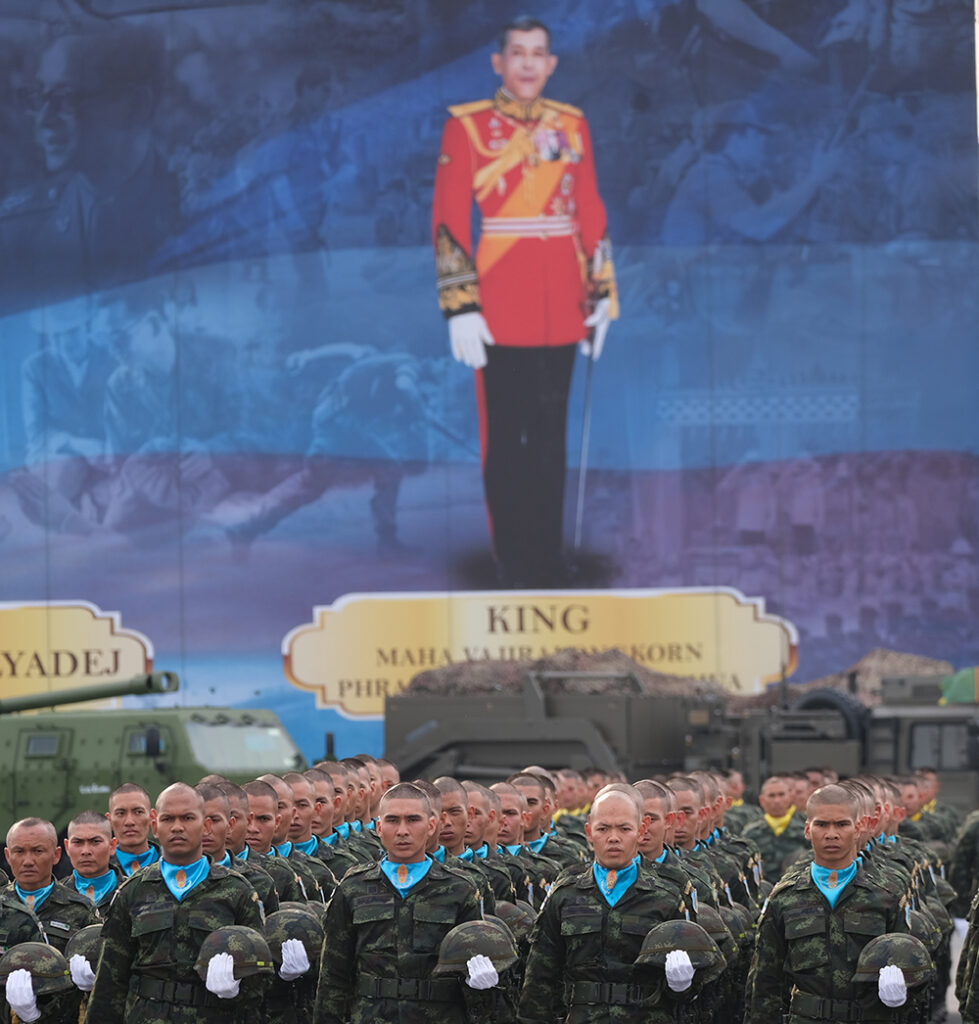
Brushstrokes of Royalist Power
Thailand's political landscape is marked by complex power dynamics and ongoing challenges to democratic principles. The plight of the Move Forward Party exemplifies the risks associated with challenging the status quo. Despite gaining significant support in the 2023 general election, the party now faces a court case that could lead to its dissolution. Targeted for advocating amendments to Article 112, a law protecting the monarchy from criticism, the Move Forward Party contends with legal challenges and accusations of defaming the royal family. However, it staunchly defends its right to participate in politics and justifies its stance of keeping the monarchy above political exploitation.
In this repressive environment, transparent and impartial judicial proceedings become crucial. The judiciary's role is essential to ensure that laws are applied fairly and that political prosecutions do not undermine democratic processes. However, the courts and state agencies are often perceived as tools of the traditional royalist establishment, contributing to the erosion of democratic institutions.
Thaksin’s ongoing legal battles, particularly his indictment on lèse-majesté charges, serve as a poignant reminder of the enduring power dynamics within Thai politics. Despite his ambitions and significant support, Thaksin remains vulnerable to the entrenched interests of the military and the monarchy. His case also highlights the broader implications for other political actors and parties seeking to navigate Thailand’s complex political landscape.
Furthermore, Thaksin's legal proceedings provoke questions about the rule of law and Thailand's constitutional integrity. If perceived as politically motivated, they risk undermining public trust in the legal system and eroding confidence in democratic institutions. His collaboration with Prime Minister Srettha Thavisin indicates a continuing influence over Thai politics, albeit in a more subdued capacity. This collaboration could either stabilise the political landscape by integrating Thaksin’s support base into the broader political framework or exacerbate tensions by reigniting conflicts with the military and monarchy.
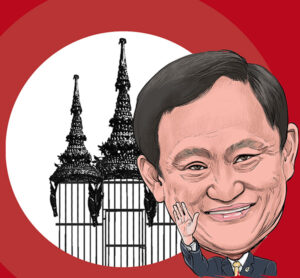 This situation also adds another layer of complexity to the analysis of Thaksin Shinawatra's return and the revival of lèse-majesté charges against him. It suggests that the military-backed government may be leveraging this opportunity not only to target Thaksin but also to weaken ties between the Pheu Thai Party and the Move Forward Party, thus consolidating its own power. Additionally, there's the possibility that Thaksin's strategic manoeuvres may have unintentionally played into the hands of the military-backed government, resulting in consequences not only for himself but also for his political allies.
This situation also adds another layer of complexity to the analysis of Thaksin Shinawatra's return and the revival of lèse-majesté charges against him. It suggests that the military-backed government may be leveraging this opportunity not only to target Thaksin but also to weaken ties between the Pheu Thai Party and the Move Forward Party, thus consolidating its own power. Additionally, there's the possibility that Thaksin's strategic manoeuvres may have unintentionally played into the hands of the military-backed government, resulting in consequences not only for himself but also for his political allies.
In conclusion, the resurgence of Thaksin Shinawatra and the revival of lèse-majesté charges against him underscore the delicate balance between populist movements and entrenched military influence in Thailand's political landscape. Upholding legal integrity and fairness is paramount, requiring transparent and impartial legal proceedings devoid of political interference. Protecting the rights of opposition parties, such as the Move Forward Party, is essential for nurturing a vibrant democracy, fostering political pluralism, and ensuring inclusive participation in the democratic process. Thus, addressing contentious issues like Article 112 through constitutional reform can modernise Thailand's legal framework, promote greater freedom of expression, and bolster public confidence in the legal system.
Prem Singh Gill
Prem Singh Gill is a Visiting Scholar at the Universitas of Muhammadiyah Yogyakarta, Indonesia and a Visiting Scholar at Thammasat University.
Banner: BANGKOK, THAILAND August 22, 2023: Thailand's former PM Thaksin Shinawatra, accused of Corruption arrives at Don Mueang International Airport, to fight his own lawsuit after 17 years in exile abroad. Photo: teera.noisakran, Shutterstock

